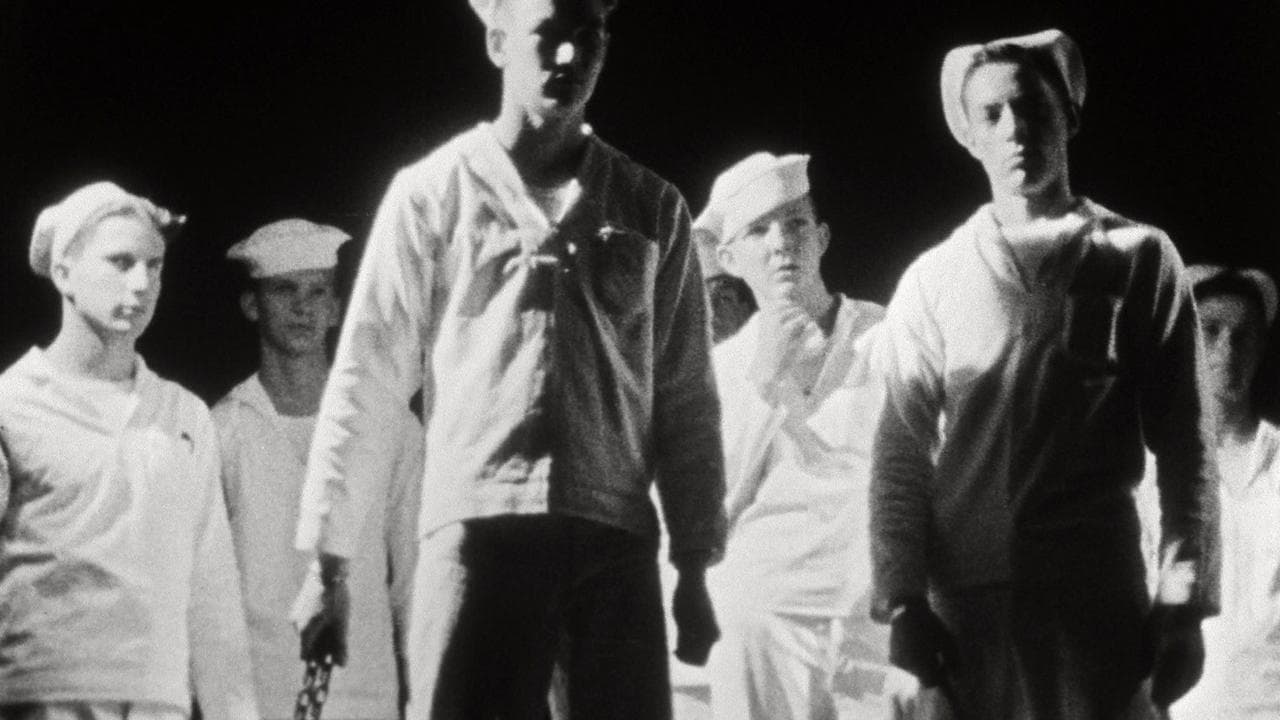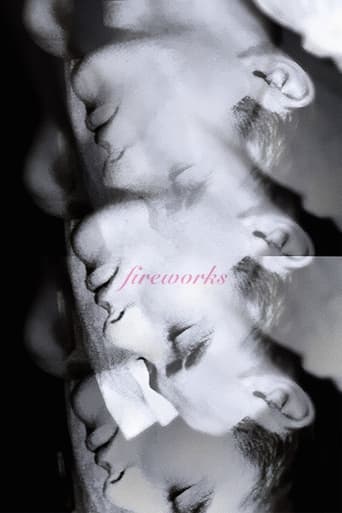

Depicts a dream sequence about the brutal rape and torture of director Kenneth Anger himself (as a teenager) by a group of sailors on the street (after trying to pick one of them up).Anger later said, "This flick is all I have to say about being seventeen, the United States Navy, American Christmas, and the Fourth of July." Holy smokes, guys. This is about as hard-hitting as it comes for the 1940s. The homosexual theme, the intense violence... this is still shocking and revolting in the 2010s... we have have grown soft to violence, but if we have I can only imagine how people in the 40s reacted when they saw this. Terrifying!
... View More"Fireworks" is a 1947 short film by Kenneth Anger and there seem to be several versions of it. The one I watched is maybe the shortest and ran for 13 minutes. Anger was 19 when he made this one and yet he already shot 5 or 6 films before it. This shows you how early he started. Still there are some differences here compared with his later work. For example, it's a rare occurrence that he acts in his own movies or that he uses black-and-white, especially because color has always been a defining element in his works. But this was shortly after World War II and the director was probably still finding his future path. What is most interesting about this film is maybe that it's possibly Anger's most violent and disturbing work. And because he acts in it, it also shows that it's a very personal film that puts a lot of focus on the protagonist's (and filmmaker's) homosexuality. However, the story is simply not interesting enough to let me recommend it. It's atmospheric yes, the music fits nicely, but the action just is too little to keep me interested even for such a short runtime. Not recommended.
... View MoreThis film has a dozen images in it that will stay tucked away in your head long after you can remember why exactly they're clawing at you. I guess the most interesting aspect from watching this film is how I was constantly repeating to myself, "This was made in 1947?".It is hard to believe that a film so overtly homo-erotic could find such a large audience at that time. That alone speaks to the overall impact the images from this film have on the viewer. Almost equally as amazing is that Anger was only 17 when he made this film. That's very brave, but strictly as a movie, it really didn't do much for me. Sometimes surrealistic images and their meaning can be lost on me, though there's quite a lot of this movie that is unmistakably "on the nose".I'm not sure quite what to make of it, but I hope that Anger worked out whatever it was he was going through at that time.
... View MoreAnger's first film was made over the course of a weekend at his family home. His parents were away. He was Seventeen.The film is a short and immensely effective exploration of sexuality. That the fantasies are of homosexual leaning bears no relevance; it is merely the chosen vehicle for the subject.The film is fascinated with the violence of sexual submission as well as the fear of it. The narrative seems to take the form of a dream sequence and is laced with astonishingly mature sarcasm and gentle wit. It is by far Anger's greatest film and a landmark of the American avant-garde.
... View More